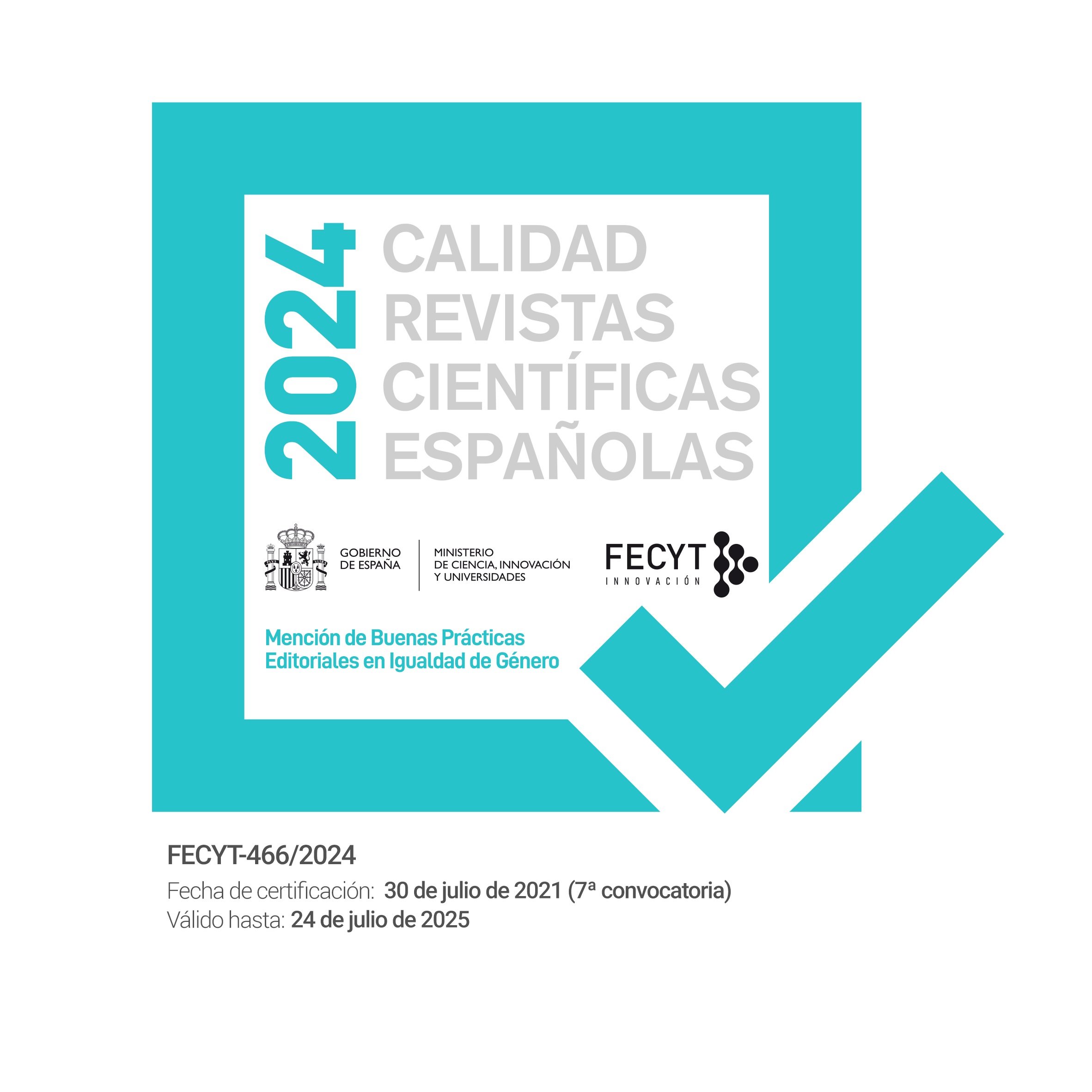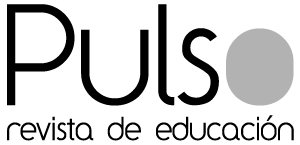Creativity, education and neoliberalism: Proposal for a critical pedagogical model
DOI:
https://doi.org/10.7203/eari.13.24210Keywords:
creativity, neoliberalism, critical education, pedagogy, learning Abstract
Abstract
This article discusses the self-interested use of the term creativity by neoliberalism, how it has influenced educational policies during the last few years, and how its influence can be counteracted by proposing an alternative as a critical pedagogical model. To this end, a preliminary attempt is made to define a concept of creativity through a multidisciplinary approach (psychological, sociological, anthropological, pedagogical...) with a critical basis that contrasts with the ideas that have been coined in recent decades by the business discourse. Taking into account this contrast, we investigate how pedagogy should resort to creativity for the optimal development of the critical capacity of students, to suggest an educational model that allows them to question the strategies and the purpose of their own learning process, as well as to freely form their own subjectivity and enhance their critical thinking. This argumentative journey resorts to a methodology based on the bibliographic review –documentary research – of the appropriate sources for the concepts treated directly and in a contextual way. Finally, a series of conclusions are presented that demonstrate the need to propose an alternative educational model, the result of a related pedagogical system, that encourages creativity in such a way that favors the generation of critical learning and teaching processes.
 Downloads
Downloads
 References
References
Aguirre, I. (2013). El papel de la educación en el acceso democrático a la cultura y las artes. Encuentros y desencuentros entre escuela y museo. Universidad Pública de Navarra. https://doi.org/10.17227/ppo.num10-2120
Aguirre, I. (2012). Hacia una nueva narrativa sobre los usos del arte en la escuela infantil. Creative Partnerships, 14 (2), 66.
Arendt, H. (2019). La pluralidad del mundo. Taurus.
Badiou, A. (2017). La verdadera vida. Un mensaje a los jóvenes. Malpaso.
Bazeley P. (2018). Integrating analyses in mixed methods research. SAGE Publications Ltd. https://doi.org/10.4135/9781526417190.
Biesta, G. (2016). Devolver la enseñanza a la educación. Una respuesta a la desaparición del maestro. Pedagogía y Saberes (44) 83-91 Universidad Pedagógica Nacional de México. https://doi.org/10.17227/01212494.44pys119.129
Boltansky, L. y Chiapello, E. (2002). El nuevo espíritu del capitalismo. Akal.
Brown, W. (2016). El pueblo sin atributos. Malpaso. https://revistas.ucm.es/index.php/RPUB/article/view/56483
Buckingham, D. (2008). Repensar el aprendizaje en la era de la cultura digital. El monitor de la educación, 18. 27-30
Carbonell, J. (2015). Pedagogías del siglo XXI: Alternativas para la innovación educativa. Octaedro.
Craft, A. (2000). Creativity Across the Primary Curriculum. Routledge. https://doi.org/10.4324/9780203457283
Craft, A. (2005). Creativity in Schools. Tensions and Dilemmas. Routledge. https://doi.org/10.4324/9780203357965
Craft, A. (2012). Childhood in a digital age: creative challenges for educational futures. London Review of Education, 10 (2), 173-190. https://doi.org/10.1080/14748460.2012.691282
Csikszentmihalyi, M. (1996). Creativity. Harper Collins.
Csikszentmihalyi, M. (1988). Society, Culture and Person: A System View of Creativity. In Robert Sternberg (Ed.), The Nature of Creativity: Contemporary Psychological Perspectives. https://psycnet.apa.org/record/1988-98009-013
De Bono, E. (1992). El pensamiento creativo. Paidós.
De Bono, E. (1986). Ideas about thinking: Excerpts from Edward de Bono’s “letter to thinkers”. The Journal of Product Innovation Management, 3 (1), 57-62.
Duffy, B. (2006). Supporting Creativity and Imagination in the Early Years. Open University Press.
Ferri, G. (2018). Com s’està transformant l’escola? Infància: educar de 0 a 6 anys. (220), 6-14.
Ferri, G. (2018). Nueva ilustración radical en educación. El Diari de l’escola d’estiu. http://diarieducacio.cat/escolaestiurosasen- sat/2018/07/04/nueva-ilustracion-radical-en-educacion/
Florida, R. (2012). Why Creativity is the New Economy [Podcast]. YouTube. https://www.youtube.com/watch?v=VPX7gowr2vE
Fontana, D. (1997). El control del comportamiento en el aula. P. Ibérica.
Fundación Botín. (2014). Informe: Artes y emociones que potencian la creatividad. Fundación Botín.
Gardner, H. (2018). Inteligencias múltiples: la teoría en la práctica. Paidós.
Gilmore B., McAuliffe E., Power J. y Vallières F. (2019). Data analysis and synthesis within a realist evaluation: Toward more transparent methodological approaches. International Journal of Qualitative Methods, 18, 1-11. https://doi.org/10.1177/1609406919859754.
Giroux, H. (2018). La Guerra del Neoliberalismo contra la Educación Superior. Herder.
Harvey, D. (2007). Breve historia del capitalismo. Akal.
Hayek, F. (1960). Los fundamentos de la libertad. Unión Editorial.
Hernández, F. (2017). Afavorir innovacions que canviïn la gramàtica de l’escola i les relacions pedagògiques, i que qüestionin la creació d’un subjecte neoliberal. Revista Catalana de Pedagogia, 12, 17-37. http://hdl.handle.net/2445/158461
Ingold, T. y Hallam, E. (2007). Creativity and Cultural Improvisation. Berg.
Ingold, T. (2011). Being Alive. Essays on movement, knowledge and description. Routledge.
Ingold, T. (2012). Ambientes para la vida. Conversaciones sobre humanidad, conocimiento y antropología. Trilce.
Kerr, B. (2021). Encyclopedia Britannica: Creativity. https://www.britannica.com/topic/creativity
Meirieu, P. (2016). La escuela nueva: Un cruce de malentendidos. El Telar de Música. http://www.telermusica.com/files/Castellano/Espacio_Elisa_Roche/7_malentendidos_Meirieu.pdf
Martín, A. (2021) Perspectivas sobre la creatividad y sus vinculaciones con la educación escolar. Un estudio relacional con maestras y estudiantes de Educación Infantil. Universitat de Barcelona. http://diposit.ub.edu/dspace/bitstream/2445/176831/1/AMM_TESIS.pdf
Murray, J. (2021). Oxford English Dictionary: Creativity. https://www.oed.com/
Ortiz, P. (2012). Monti consigue aprobar una dura reforma laboral. El País.
Owens, A. (2018). Creativity and Democracy in Education: Practices and politics learnings through the arts. Routledge
Pardo, J.C. y García, A. (2003). Los estragos del neoliberalismo y la Educación Pública. Educatio 20-21, p.39-85. Universidad de Santiago de Compostela.
Pawson R., Greenhalgh T., Harvey G. y Walshe K. (2004). Realist Synthesis: An Introduction. ESRC Research Methods Programme Working Paper Series.
Pope, R. (2005). Creativity: Theory, History, Practice. Routledge.
Robinson, K. (1999). All Our Futures: Creativity, Culture and Education. National Advisory Committee on Creative and Cultural Education (NACCCE). https://sirkenrobinson.com/pdf/allourfutures.pdf
Rowan, J. (2010). Emprendizajes en cultura. Traficantes de Sueños.
Santamaría, A. (2018). En los límites de lo posible: Política, cultura y capitalismo afectivo. Akal.
Sawyer, R. K. (2011). The Western Cultural Model of Creativity: Its Influence on Intellectual Property Law. Notre Dame Law Review, 86 (5), 2027-2056. http://scholarship.law.nd.edu/ndlr/vol86/iss5/10
Sawyer, R. K. (2006). Educating for innovation. Thinking Skills and Creativity, 1 (1), 41-48. https://doi.org/10.1016/j.tsc.2005.08.001
Siemens, G. (2012). Conociendo el conocimiento. Nodos Ele, editorial virtual.
Smith, A. (2011). La riqueza de las naciones. Alianza.
Tatarkiewicz, W. (1990). Historia de seis ideas: un ensayo de estética. Tecnos.
Weisberg, R. W. (1988). Problem solving and creativity. In R. J. Sternberg (Ed.), The nature of creativity: Contemporary psychological perspectives, 148–176. Cambridge University Press.
Varnum, M. E. W. y Grossmann, I. (2017). Cultural Change: The How and the Why. Perspectives on Psychological Science, 12(6), 956- 972. https://doi.org/10.1177/1745691617699971
Zepeda, M. E. (2022). 2030: La Gran Escuela. Principios Teóricos para una Pedagogía Sistémica. Revista Educación, Política Y Sociedad, 7(2), 326–354. https://doi.org/10.15366/reps2022.7.2.014
Downloads
Published
How to Cite
-
Abstract725
-
PDF (Español)906
Issue
Section
License
![]()
Educación artística: revista de investigación (EARI) retains the proprietary rights (copyright) of published works, and favors and allows the reuse of the same under the license Creative Commons Attribution-Noncommercial Use 4.0 International License (CC-BY-NC 4.0), which allows third parties to use the published material whenever the authorship of the work and the source of publication is mentioned (journal, publisher and URL of the work), and it is used for non-commercial purposes.
Authors are encouraged to disseminate their work after it has been published, through the internet (for example, in institutional archives online or on its website) which can generate interesting exchanges and increase work appointments.








